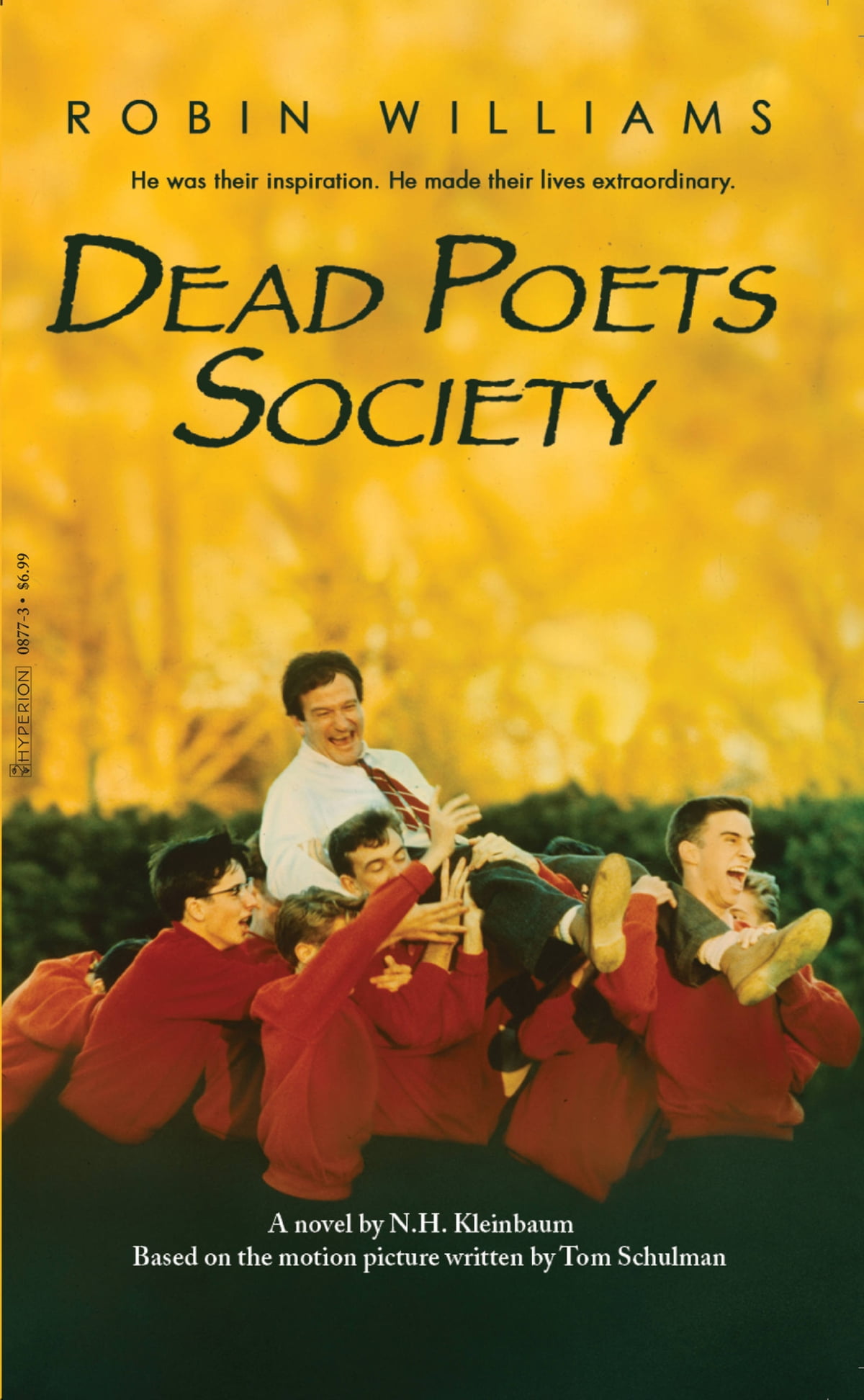Dead Poets Society was written by American playwright Tom Schulman and brought to the screen in 1989. The Dead Poets Society is a classic film written by American playwright Tom Schulman and brought to the screen in 1989, directed by the famous director Peter Weir and starring Robin Williams, which won four major awards after its release, including the Academy Award for Best Picture, Best Actor, Best Director and Best Original Screenplay, and eventually won the Academy Award for Best Original Screenplay that year.
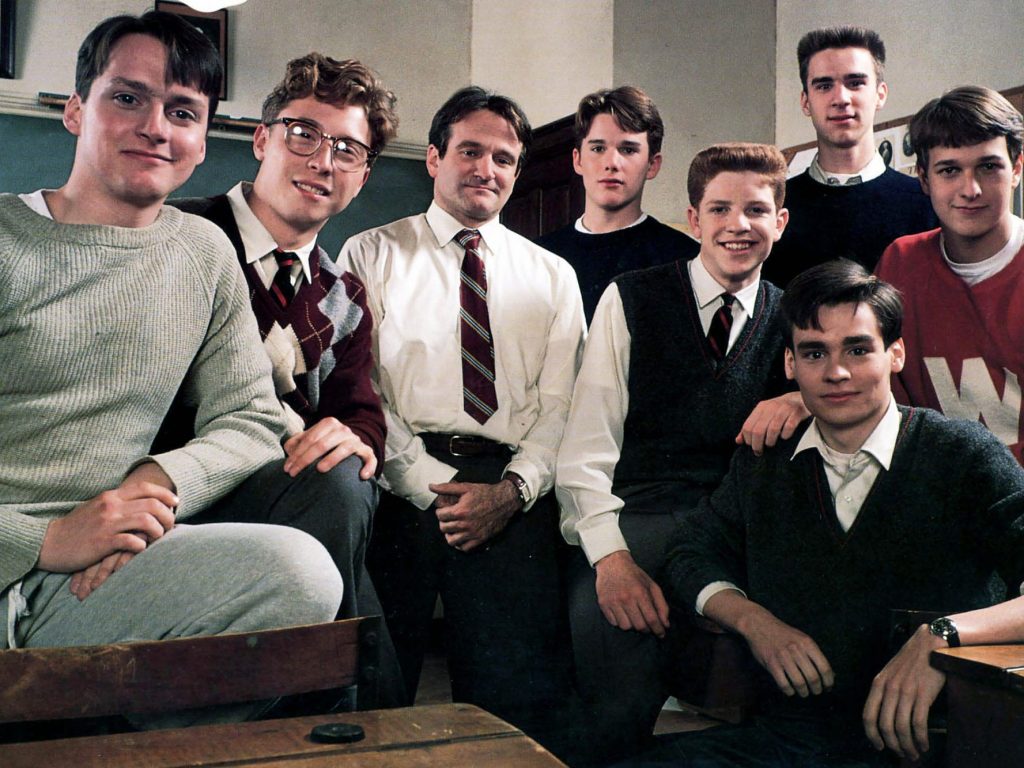
The story of “Dead Poets Society” is set in 1959 in the United States. In an otherwise quiet high school, an English teacher named John Keating influences his students with his unique philosophy of life and anti-conventional teaching methods, so that a group of students who come from wealthy families and have a clear family future begin to learn to think independently and boldly pursue their own ideals in life.
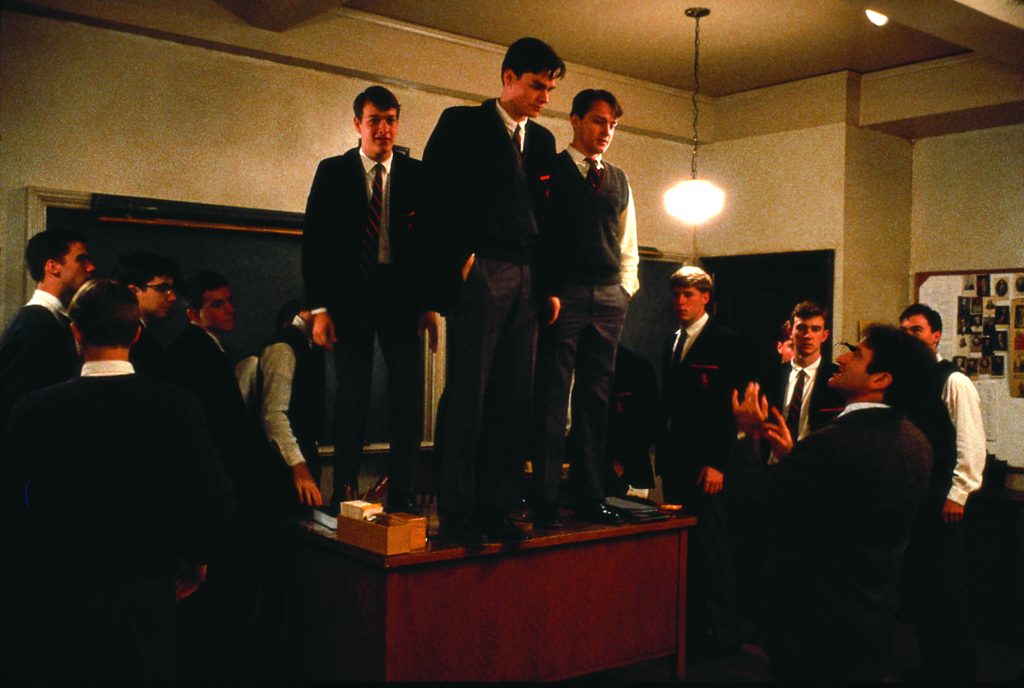
He cleverly taught the students another way to experience life, and he inspired them, and some brave students did not hesitate to re-establish the secret society “Dead Poets Society”. Their main activity was to gather at night in a cave for literary exercises, and the comic strokes continued until Neil was forced to commit suicide by his tyrannical father, which provoked a blind repression of the school and the expulsion of Keating, but the new ideas had already taken root in the hearts of the students.
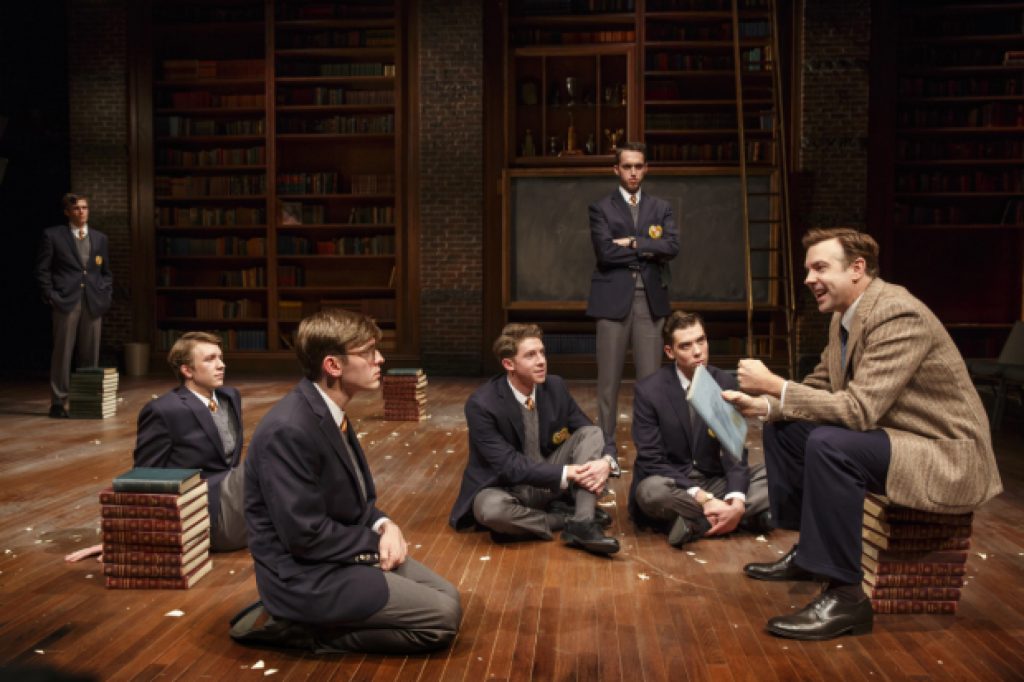
Dead Poets Society is neither Peter Weir’s most perfect work nor his most profound film, but his popularity shows that he is adept at touching the hearts of his audience. Without deliberately showing off his skills, without actively satisfying the market, he remains in control even of the final climactic outburst. The film gives a beautiful classroom of freedom, and although it doesn’t have the unexpected atmosphere of Will’s previous films, it still gives us a way to break away from established cultural perceptions, to react to the outside world and come up with new ideas, and throughout, director Will never gives up on expressing his preference for a more tolerant society.
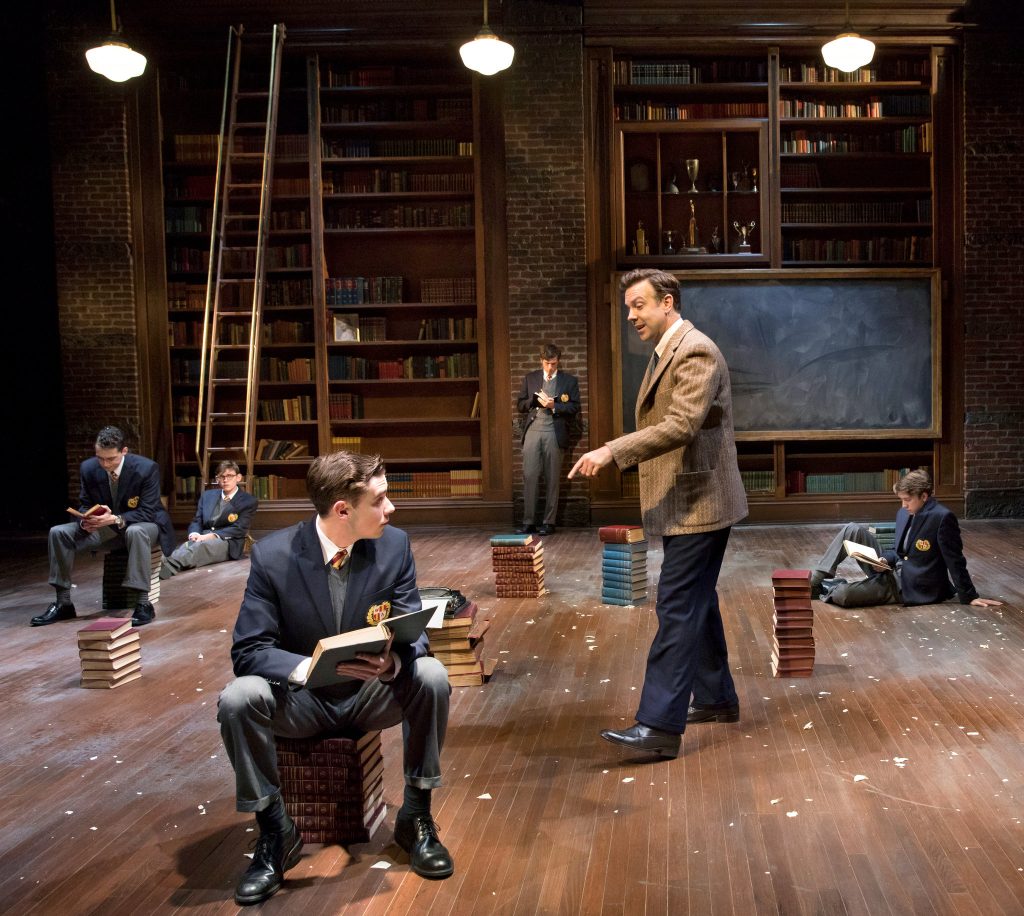
The film’s Mr. Keating is played by the famous comedian Robin Williams. He is a very special actor who specializes in funny performances, and he has appeared in “Good Morning Vietnam”, “Mind Drip”, “Mind Catcher” and other works. Although as a performer who is known for his comedy, Robin Williams’ interpretation always has a bit of warmth and humanity in it.
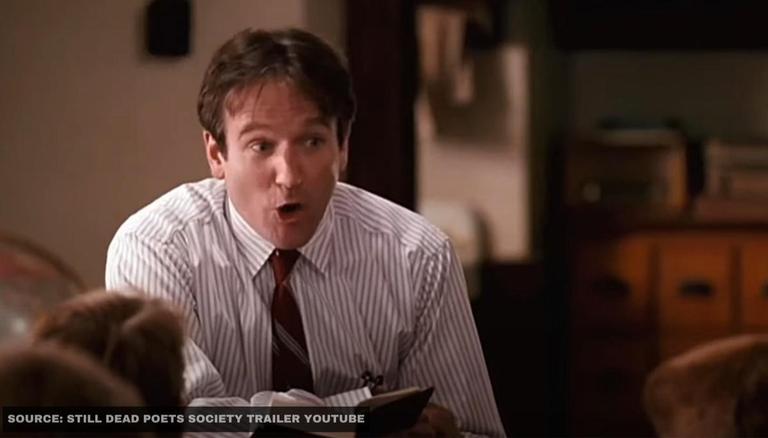
In “Dead Poets Society” he plays this teacher John Keating is another wonderful performance of his comic skills. Since Mr. Keating is out of place with the people around him and the environment and atmosphere of the school, and the conflict between his lively character and the closed old school is very intense, Robin Williams’ exaggerated performance is characteristically plausible and logically correct, thus creates a great dramatic tension.
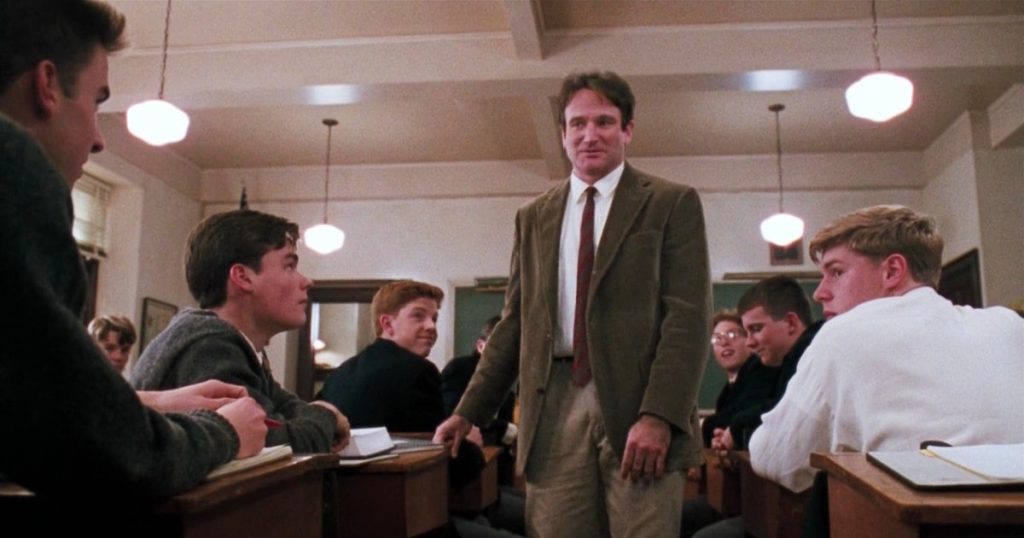
The whole film is full of tension, poetry and passion, a wonderfully alternative film, a delightful film against conventional pedagogy, a film with a wise arrangement of clues that keeps us interested in the plot. The real theme of Dead Poets Society is creativity, the film itself is a passionate poem in which the author narrates in pure cinematic language the story of freedom, life and the connection with the old order.
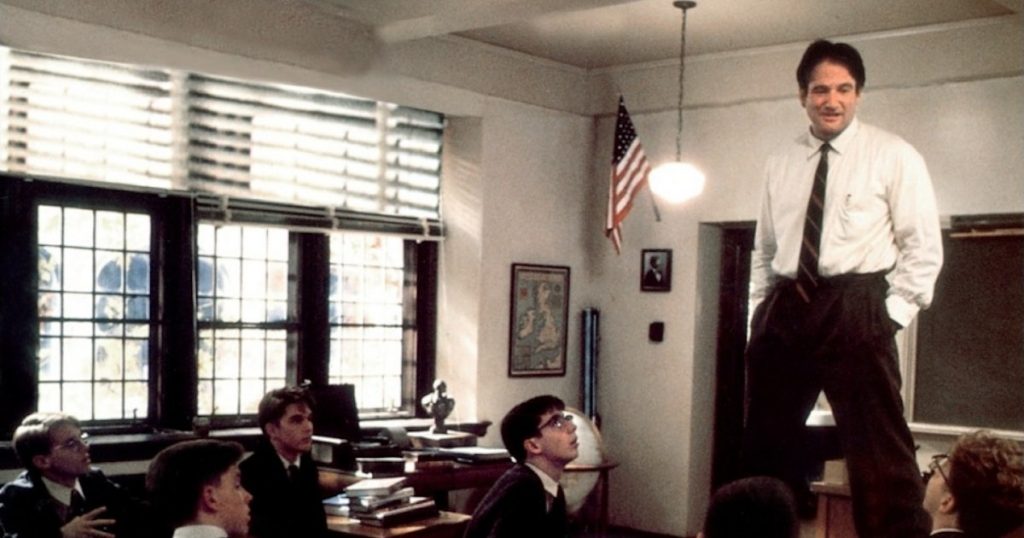
In the film, there is a contradiction between the ideal and the reality. The director tries to portray an anti-traditional approach to education that allows students to find themselves in confusion, to awaken their souls in the darkness and to find hope in life. The opposition between traditional closure and youthful vitality in the film shows a spiritual symbol and ideal pursuit of “Dead Poets Society”.
Throughout the film, “Dead Poets Society” is not a gigantic production in the traditional sense, but it is a very strong imprint of the director’s heart not to follow the rigid system and the roaming of ideas. In this film, the director tries to break through the shackles and seek again the origin of human heart’s emotions and longings, and the ritualistic camera allows the viewer to see a magical world, constantly pursuing the basis of civilization, the rationality of things and the moral of teaching and education, and these, too, are the film’s These are the greatest meaning and value of the film.
